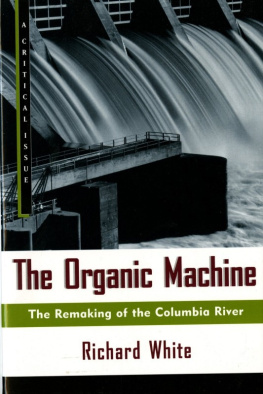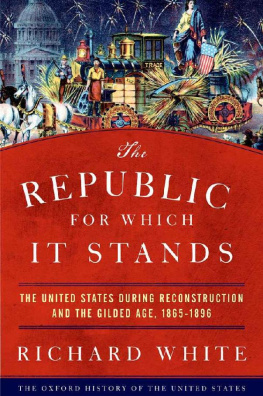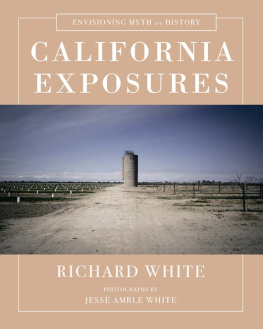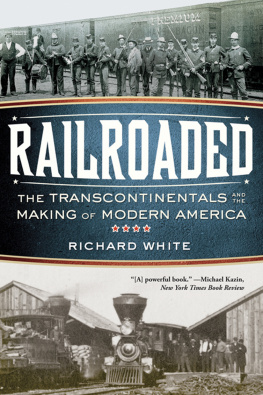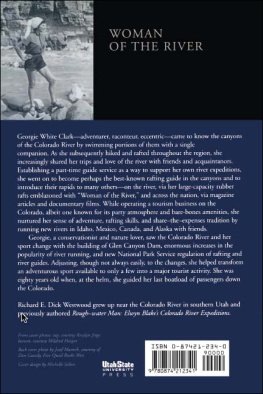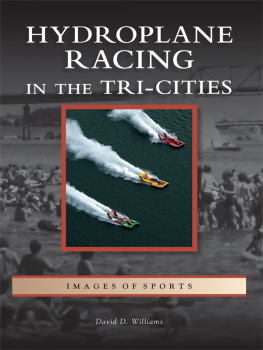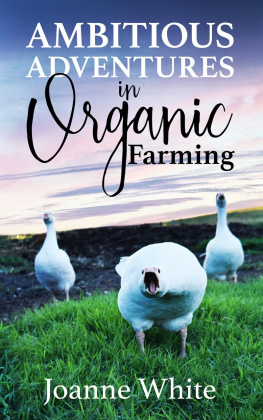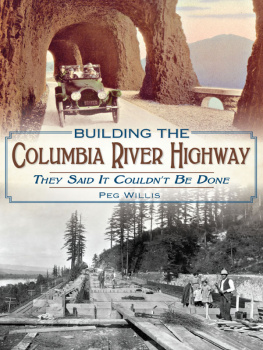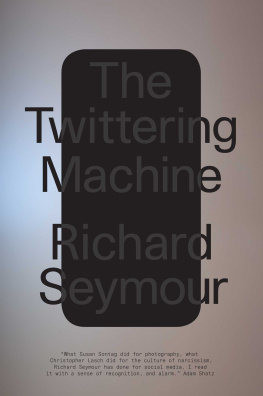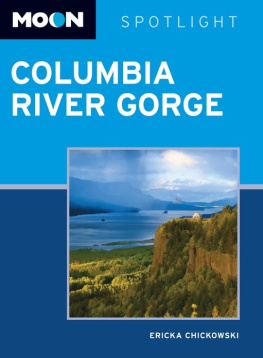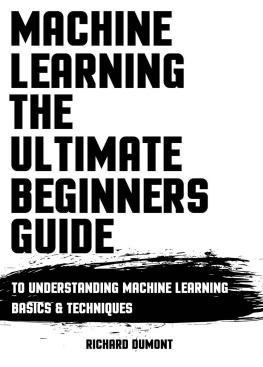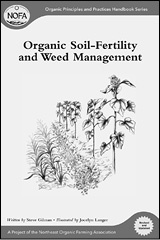Richard White - The Organic Machine: The Remaking of the Columbia River
Here you can read online Richard White - The Organic Machine: The Remaking of the Columbia River full text of the book (entire story) in english for free. Download pdf and epub, get meaning, cover and reviews about this ebook. genre: Romance novel. Description of the work, (preface) as well as reviews are available. Best literature library LitArk.com created for fans of good reading and offers a wide selection of genres:
Romance novel
Science fiction
Adventure
Detective
Science
History
Home and family
Prose
Art
Politics
Computer
Non-fiction
Religion
Business
Children
Humor
Choose a favorite category and find really read worthwhile books. Enjoy immersion in the world of imagination, feel the emotions of the characters or learn something new for yourself, make an fascinating discovery.
- Book:The Organic Machine: The Remaking of the Columbia River
- Author:
- Genre:
- Rating:4 / 5
- Favourites:Add to favourites
- Your mark:
- 80
- 1
- 2
- 3
- 4
- 5
The Organic Machine: The Remaking of the Columbia River: summary, description and annotation
We offer to read an annotation, description, summary or preface (depends on what the author of the book "The Organic Machine: The Remaking of the Columbia River" wrote himself). If you haven't found the necessary information about the book — write in the comments, we will try to find it.
The Organic Machine: The Remaking of the Columbia River — read online for free the complete book (whole text) full work
Below is the text of the book, divided by pages. System saving the place of the last page read, allows you to conveniently read the book "The Organic Machine: The Remaking of the Columbia River" online for free, without having to search again every time where you left off. Put a bookmark, and you can go to the page where you finished reading at any time.
Font size:
Interval:
Bookmark:

Copyright 1995 by Richard White
All rights reserved
Printed in the United States of America
Published simultaneously in Canada by HarperCollins CanadaLtd
LIBRARY OF CONGRESS CATALOGING-IN-PUBLICATION DATA
White, Richard.
The organic machine / Richard White ; consulting editor, Eric Foner.
p. cm. (A critical issue)
Includes bibliographical references and index.
1. Columbia RiverHistory. 2. Columbia River RegionHistory. 3. ManInfluence on natureColumbia River. 4. ManInfluence on natureColumbia River Region. 5. ManInfluence of environment Columbia River. 6. ManInfluence of environmentColumbia River Region. I. Foner, Eric. II. Title. III. Series.
F853.W6751995979.7dc2094-46595CIP
To Beverly,
the bravest person I know
/ Knowing Nature through Labor
/ Putting the River to Work
/ The Power of the River
/ Salmon
The Columbia River has borne fewer books than barges, but its burden has been great enough so that yet another one, even one as short as this, demands justification. This is a little book with large ambitions. It is about a particular rivera stunningly beautiful riverand the people who have changed it. But it does not approach the river in the usual way. I want to examine the river as an organic machine, as an energy system which, although modified by human interventions, maintains its natural, its 'unmade qualities.
I emphasize energy because energy is such a protean and useful concept. The flow of the river is energy, so is the electricity that comes from the dams that block that flow. Human labor is energy; so are the calories stored as fat by salmon for their journey upstream. Seen one way, energy is an abstraction; seen another it is as concrete as salmon, human bodies, and the Grand Coulee Dam. I will measure the books success by the extent to which it surprises its readers, catches them off guard, and forces them to think in new ways not merely about the Columbia but about nature and its relation to human beings and human history.
My argument in this book is that we cannot understand human history without natural history and we cannot understand natural history without human history. The two have been intertwined for millennia. As I have gotten into middle age, history has seemed less and less about things or ideas or individual persons and more and more about relationships. Nature, at once u cultural construct and a set of actual things outside of us and not fully contained by our constructions, needs to be put into human history. Nature, to paraphrase Donald Worster, is salmon swimming, the river flowing, and, I would add, humans fishing. In aiming for a relationship, I mean to do more than write a human history alongside a natural history and call it an environmental history. This would be like writing a biography of a wife, placing it alongside the biography of a husband and calling it the history of a marriage. I want the history of the relationship itself.
What I have stressed are qualities that humans and the Columbia River share: energy and work. I do not deny the huge differences between human work and the work of nature. I do not attribute either a consciousness or a purpose to nature. I do argue that it is our work that ultimately links us, for better or worse, to nature. One of the great shortcomingsintellectual and politicalof modern environmentalism is its failure to grasp how human beings have historically known nature through work. Environmentalists, for all their love of nature, tend to distance humans from it. Environmentalists stress the eye over the hand, the contemplative over the active, the supposedly undisturbed over the connected. They call for human connections with nature while disparaging all those who claim to have known and appreciated nature through work and labor.
On a more mundane level, I came to this book with a dual fascination; I have long been intrigued by both salmon and dams. I first came to know salmon years ago with Indian gillnetters on the Nisqually River. The Nisqually knew salmon by catching them. They taught me, although I was too dim to recognize it then, how nature can be known through labor. My fascination with dams began the first time I saw a turbine room of a big dam. It was so obviously a human creation, and yet, paradoxically, there was virtually no visible human presence. The interior of a dam is an eerie place. The turbines turn in the unseen river; the generators produce electricity. A dam seems a piece of ghost technology. This, of course, is not true. Humans supervise the whole immense structure; without human maintenance the machinery would freeze up and cease to function. The dam would begin to self-destruct.
Being fascinated by both salmon and dams, and appreciative of the virtues of each, I have tried to write this book in quite conscious opposition to modern reductionisms: the reductions of the natural world to property, the reduction of action to discourse, of life to the market, of the great changing and multifarious planet to a stable and harmonious Nature. This is a book which seeks to blur boundaries, emphasize impurity, and find, paradoxically, along those blurred and dirty boundaries ways to better live with our dilemmas. What this book suggests is that if we want to understand what we have done and how we have acted in nature, we might want to spend more time thinking about Ralph Waldo Emerson and Lewis Mumford and less about Henry David Thoreau and John Muir. We might want to look for the natural in the dams and the unnatural in the salmon. The boundaries between the human and the natural have existed only to be crossed on the river.
I want to thank Robert Self, my research assistant on this project. His aid was invaluable. Dick Lowitt saved me a great deal of effort by allowing me access to his own files gathered in his research for his book The New Deal and the West . James Anderson generously allowed me to attend demonstrations of CRiSP, the most sophisticated computer model of the Columbia. Bill Rudolph sent me his own engaging, funny, and perceptive writings on the fishery disputes of the Columbia. John Findlay and Bruce Hevly, my colleagues at the University of Washington, allowed me to use their own work on Hanford, and Bruce perceptively read sections of the manuscript for me. Jay Taylor, who knows the fisheries far better than I do, read the manuscript for me, and Anne Spirn read the sections on New Deal planning. Both readings were immensely helpful; any misinterpretations and mistakes that remain are mine, not theirs. My wife, Beverly Purrington, put up with my fascination with dams, allowed me to turn vacations into hydroelectric tours, and read this manuscript with the kind of critical exasperation that I have come to depend on. Finally, I would like to thank Arthur Wang, who, for better or worse, persuaded me to write this book, patiently waited for it, and along with Eric Foner, the Consulting Editor of this series, provided both advice and judicious editing.
The format of this series does not include footnotes, but this manuscript is fully, indeed excessively, annotated. I will deposit a footnoted typescript of the unedited version of this manuscript in Special Collections of the University of Washington Library for those who are interested.


Knowing Nature through Labor: Energy, Salmon Society on the Columbia
Next pageFont size:
Interval:
Bookmark:
Similar books «The Organic Machine: The Remaking of the Columbia River»
Look at similar books to The Organic Machine: The Remaking of the Columbia River. We have selected literature similar in name and meaning in the hope of providing readers with more options to find new, interesting, not yet read works.
Discussion, reviews of the book The Organic Machine: The Remaking of the Columbia River and just readers' own opinions. Leave your comments, write what you think about the work, its meaning or the main characters. Specify what exactly you liked and what you didn't like, and why you think so.

